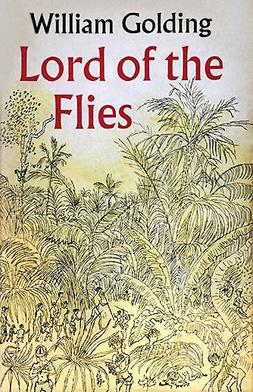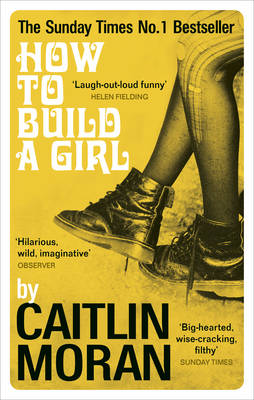When Ernest Hemingway said that “there is no friend as loyal as a book”, he succinctly encapsulated the way in which bibliophiles consume and adore literature. A good book can transform a dull afternoon, while away a long train journey, transport you to the dazzling unknown, and help to nurture your imagination in the most remarkable way possible. The five books I’ve chosen aren’t necessary my favourite five books of all time, but they have all contributed to my appreciation of literature in different ways and at different stages of my life.
The Secret History // Donna Tartt
 Anyone who has met me will know of my deep-rooted love for Donna Tartt’s The Secret History. The novel, written in a beautiful neo-Romantic and almost Dostoyevsky-esque style, recounts the events surrounding a group of unusual Classics students at a Vermont college. When the protagonist learns that the eccentric ensemble committed an atrocity that is in threat of being exposed, everyone soon has to deal with the physical, practical and psychological effects of their decisions, culminating in tragedy.
Anyone who has met me will know of my deep-rooted love for Donna Tartt’s The Secret History. The novel, written in a beautiful neo-Romantic and almost Dostoyevsky-esque style, recounts the events surrounding a group of unusual Classics students at a Vermont college. When the protagonist learns that the eccentric ensemble committed an atrocity that is in threat of being exposed, everyone soon has to deal with the physical, practical and psychological effects of their decisions, culminating in tragedy.
Although the opening passages detailing the narrator’s stifling teenagehood may trick us into thinking that the book concerns the struggles of a disaffected youth, Tartt swiftly puts an end to such nonsense as we are plunged into the daunting world of the ancient Greeks. “Genuine beauty is always quite alarming”, the charismatic Dr Morrow warns us – and he was right to do so. The dark surface of the book glimmers with a beauty that is, indeed, only best described as “terror.”
Tartt achieves inconceivable wonders in the novel; each character in the group is constructed in a way that makes them seem like idiosyncratic erudites, adrift in the world of the Ancient Greeks, yet they are placed in a situation where even the unimaginable is plausible. When members of the ensemble attempt to recreate a frenzied Dionysian rite, we ogle at how beautifully Tartt describes a bloodstain on a white sheet, or light shining in the dark, yet we fail to compartmentalise our moral standards – only a truly talented author can make you sympathise with and adore the most abhorrent and impassive characters. This book is truly a work of genius that has made me appreciate literature in an utterly new way.
The Princess Bride // William Goldman
.jpg) I love a good genre-crossing book, and Goldman’s 1973 classic does just that, conglomerating elements of romance, fantasy, adventure, comedy and fairy tale. After borrowing a copy from a cousin, aged around thirteen, I soon devoured it and began to appreciate comic satire in literature. In some sort of Renaissance-era world, the beautiful Buttercup (our “Princess Bride”) falls in love with farm-boy Westley, who appears to be killed by the Dread Pirate Roberts – she is forced to marry the repulsive Prince Humperdinck. Meanwhile, a Sicilian criminal genius, a Spanish fencing master and a Turkish wrestling giant kidnap her, and various faintly ridiculous events take place which result in an utterly tongue-in-cheek, swashbuckling adventure.
I love a good genre-crossing book, and Goldman’s 1973 classic does just that, conglomerating elements of romance, fantasy, adventure, comedy and fairy tale. After borrowing a copy from a cousin, aged around thirteen, I soon devoured it and began to appreciate comic satire in literature. In some sort of Renaissance-era world, the beautiful Buttercup (our “Princess Bride”) falls in love with farm-boy Westley, who appears to be killed by the Dread Pirate Roberts – she is forced to marry the repulsive Prince Humperdinck. Meanwhile, a Sicilian criminal genius, a Spanish fencing master and a Turkish wrestling giant kidnap her, and various faintly ridiculous events take place which result in an utterly tongue-in-cheek, swashbuckling adventure.
The sense of farce is heightened by Goldman’s playful literary devices; the book appears as an abridgement of the original book written by “S. Morgenstern”, yet the book is entirely written by Goldman; Morgenstern is utterly fictional. There’s a gentle giant addicted to rhyming; a man who says “inconceivable!” a lot, but doesn’t really know what the word means; fireswamps; and a zoo of death. People may have watched the film, but it doesn’t do the book justice – and although Buttercup is an airhead, and the whole ensemble is absurd, it’s a satire. Goldman’s faux-commentary serves to satirise academics who read far too much into what is a pretty simple story.
Lord Of The Flies // William Golding
 Lord Of The Flies is profoundly English, profoundly dark, and inflected with conflicts of a ‘heart of darkness’, which makes it a truly terrifying tale of the human psyche. Written at a time where the depths of depravity in human behaviour had just been exhibited in the form of Nazi Europe, Golding manipulated these ideals in the most unexpected of vessels – children.
Lord Of The Flies is profoundly English, profoundly dark, and inflected with conflicts of a ‘heart of darkness’, which makes it a truly terrifying tale of the human psyche. Written at a time where the depths of depravity in human behaviour had just been exhibited in the form of Nazi Europe, Golding manipulated these ideals in the most unexpected of vessels – children.
When an airplane crash leaves a group of young British boys on an uninhabited island with no adults, they must work together to survive and be rescued. However, when issues of authority arise and the growing primal instinct of some of the boys begin to take over, atrocities are committed that linger on the surviving boys’ psyche even after they learn that they are to be rescued.
Like many, I was introduced to the novel when it was made a GCSE set text, and although I didn’t particularly enjoy long, tedious lessons dissecting metaphors, I was fascinated by Golding’s intentions. It was one of the first books I read that really made me think critically about symbolism, historical context, psychology, human nature. My heart wrenches at Piggy’s torment, jumps in horror at Simon’s fate, and burns in disgust at Jack’s conceit. It truly is a gem of British literature.
How To Build A Girl // Caitlin Moran
 Semi-autobiographical and set in Wolverhampton in the 1990s, Moran’s 2014 novel recounts the teenagehood of 14-year-old Johanna Morrigan. Whilst battling her sexual urges, talking in detail about masturbation (the book has been describes as an “age of coming” novel as opposed to a “coming of age” novel), her “mental” family and desire to be a literary wizard, she becomes inspired by Oscar Wilde’s niece, Dolly (who becomes her music journalism alter ego) and moves to London to pursue her dreams.
Semi-autobiographical and set in Wolverhampton in the 1990s, Moran’s 2014 novel recounts the teenagehood of 14-year-old Johanna Morrigan. Whilst battling her sexual urges, talking in detail about masturbation (the book has been describes as an “age of coming” novel as opposed to a “coming of age” novel), her “mental” family and desire to be a literary wizard, she becomes inspired by Oscar Wilde’s niece, Dolly (who becomes her music journalism alter ego) and moves to London to pursue her dreams.
Moran is a heroine of mine, and her writing is unwaveringly brilliant; her feminist stance permeates her literature in a way that makes it comical but doesn’t undermine its salient message. Johanna’s antics have you in stitches, from her social mishaps to sexual ones; she is utterly uncool and precocious. I love when a novel has no filter (read Charlotte Roche’s Wetlands if you’re with me of that one), and Moran completely lifts the lid on Johanna’s iconoclastic life as she gallivants around London. It’s so readable and current and I think everyone, boy or girl, should give this book a go.
Down And Out In Paris And London // George Orwell
 Down And Out In Paris And London isn’t Orwell’s best book, or most well-known, or most interesting. In fact, it’s downright depressing, being Orwell’s memoir of a life ravaged by poverty: first in Paris as he attempts to find work in Parisian restaurants, working seventeen-hour shifts in filthy kitchens, and then in London, from the perspective of a tramp. The reason why I’ve included this book in my top five is because I feel that the book encapsulates many things that I love about literature.
Down And Out In Paris And London isn’t Orwell’s best book, or most well-known, or most interesting. In fact, it’s downright depressing, being Orwell’s memoir of a life ravaged by poverty: first in Paris as he attempts to find work in Parisian restaurants, working seventeen-hour shifts in filthy kitchens, and then in London, from the perspective of a tramp. The reason why I’ve included this book in my top five is because I feel that the book encapsulates many things that I love about literature.
Firstly, the inclusions of both French and English touches – I study both subjects at University and am fascinated by the culture, customs and language of both countries. Orwell contrasts both in a way that truly facilitates a hugely interesting opportunity to examine poverty in the early twentieth century. Moreover, the tinges of the tragi-comic prevalent throughout the memoir is a theme that I love to look critically within literature. Orwell writes unflinchingly in all his books, and in this one, his first publication, in 1933, he does so without hysteria or prejudice.
